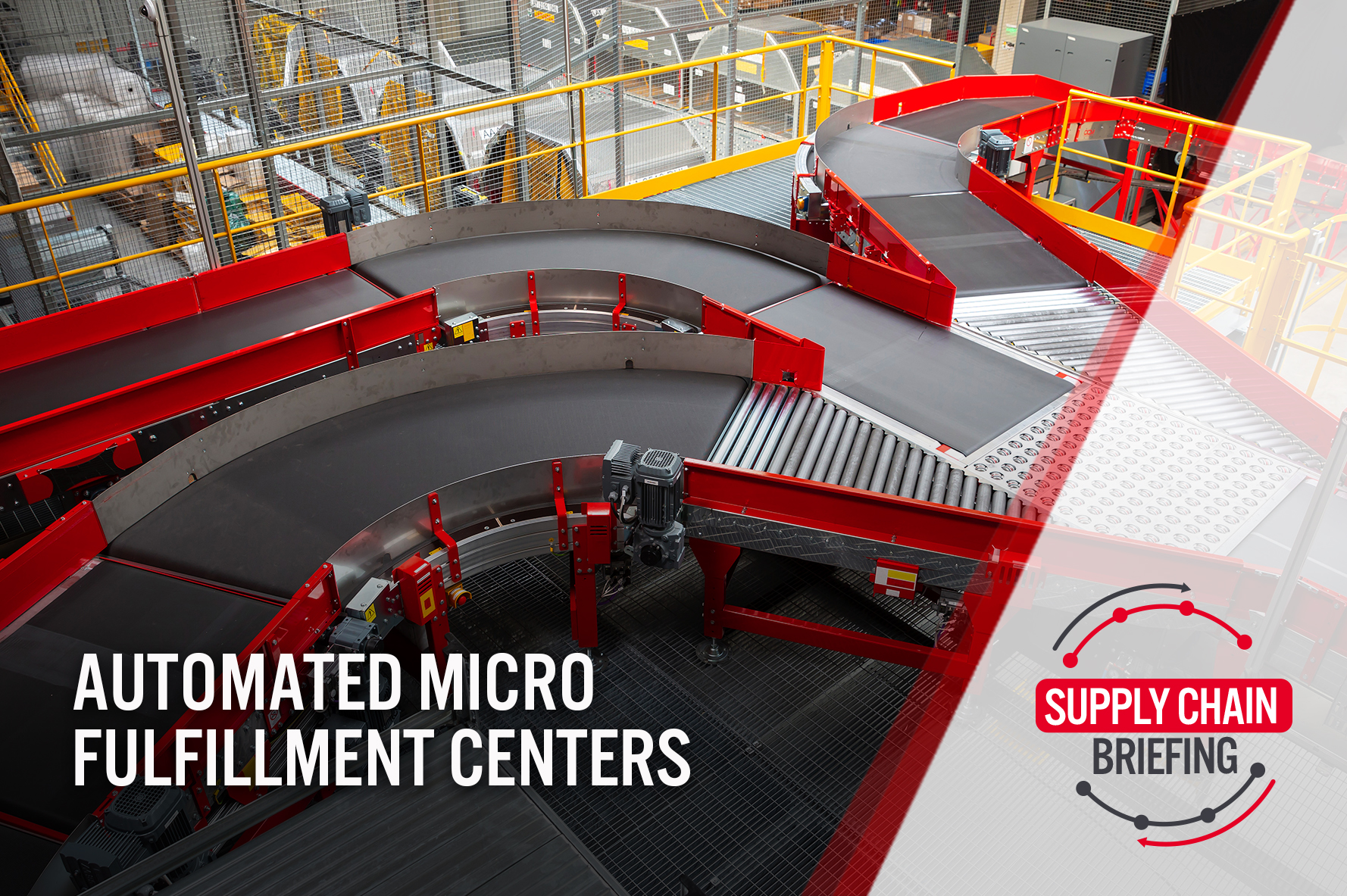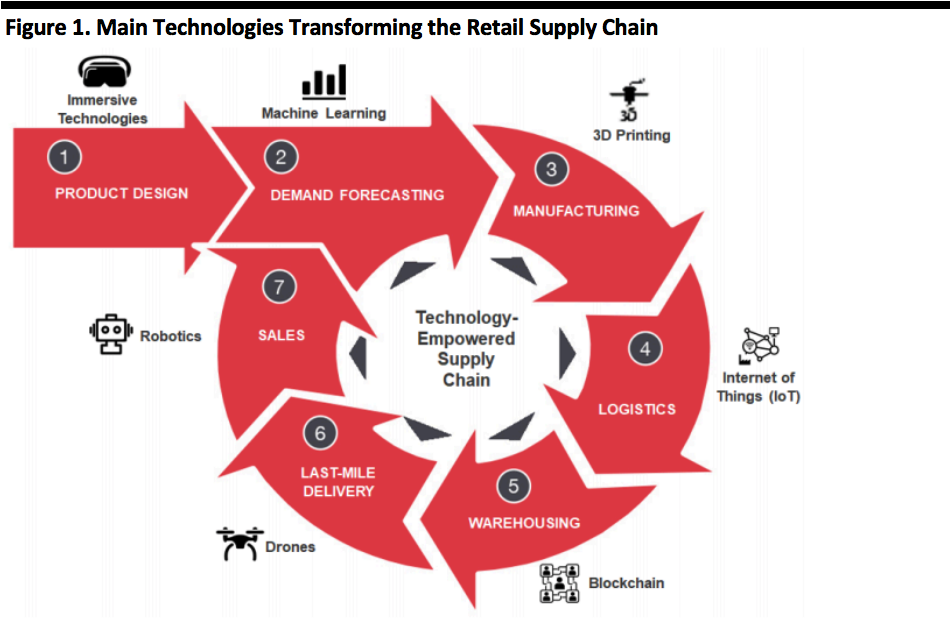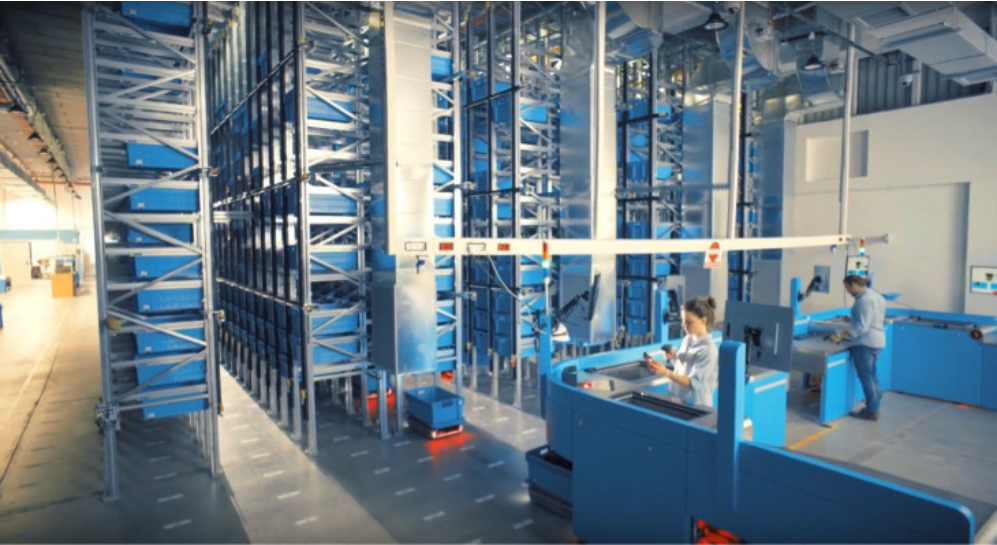
Nitheesh NH
[caption id="attachment_96742" align="aligncenter" width="700"] Source: Coresight Research[/caption]
What Are Automated Micro Fulfillment Centers?
Automated micro fulfillment centers are small-scale, urban warehouses – intended to be located closer to the end consumer – with automated picking facilities for online orders. They can be located inside, at the back of stores or in underutilized real estate to quickly assemble orders for delivery or customer pickup. This approach gets goods to consumers faster and cheaper than delivering from remote sites.
Business Case for Automated Micro Fulfillment Centers
Existing supply chains are challenged to meet the demands and logistics of modern e-commerce fulfillment. Repurposing existing space in urban centers can provide relief by turning them into micro fulfillment centers: They require less space, can be located closer to the end customer and automated to reduce staffing costs.
How can Retailers Benefit from Automated Micro Fulfillment Centers?
Micro fulfillment centers offer a number of benefits:
Source: Coresight Research[/caption]
What Are Automated Micro Fulfillment Centers?
Automated micro fulfillment centers are small-scale, urban warehouses – intended to be located closer to the end consumer – with automated picking facilities for online orders. They can be located inside, at the back of stores or in underutilized real estate to quickly assemble orders for delivery or customer pickup. This approach gets goods to consumers faster and cheaper than delivering from remote sites.
Business Case for Automated Micro Fulfillment Centers
Existing supply chains are challenged to meet the demands and logistics of modern e-commerce fulfillment. Repurposing existing space in urban centers can provide relief by turning them into micro fulfillment centers: They require less space, can be located closer to the end customer and automated to reduce staffing costs.
How can Retailers Benefit from Automated Micro Fulfillment Centers?
Micro fulfillment centers offer a number of benefits:
 Takeoff micro fulfillment center
Takeoff micro fulfillment center
Source: Takeoff Technologies[/caption] Israel-based CommonSense Robotics is a startup that builds automated micro fulfillment centers that make grocery e-commerce more efficient by locating facilities close to end-customers. Grocery stores can have suppliers deliver directly to the CommonSense Robotics facilities for storage and order fulfillment. As online grocery orders come in, robots race around to pick up boxes containing products and brings those boxes to human employees. Staff can then pick out individual products, pack them up and let a different set of robots transport packed orders to a shipping area for loading and delivery. [caption id="attachment_96744" align="aligncenter" width="700"] CommonSense Robotics micro fulfillment center
CommonSense Robotics micro fulfillment center
Source: CommonSense Robotics[/caption] Retail Use Cases of Micro Fulfillment Centers On August 7, Australian supermarket chain Woolworths Group and Takeoff Technologies announced plans to implement automated micro fulfillment capabilities at three store locations over the next 12 months as a trial to help the supermarket chain meet growing online shopping volumes. The technology works in an automated vertical system, meaning employees do not have to walk up and down aisles to select items to fulfil orders. According to Woolworths Group CEO Brad Banducci, partnering with Takeoff Technologies can help to provide fast and convenient e-commerce solutions to customers, and help to deliver convenience to shoppers at a local level. CommonSense Robotics announced in July 2019 that it will build the world’s first underground automated warehouse, in partnership with Rami Levy, one of Israel’s largest grocery chains. The facility will be a full-service grocery site with three temperature zones, supporting on-demand fulfillment of fresh, ambient temperature, chilled and frozen items, enabling the grocer to fulfill delivery orders in less than an hour. The center also leverages robotic sorting systems and AI, so can prepare items for delivery even more quickly. Key Insights Retailers face challenges with steadily rising consumer expectations around online convenience, rapid delivery and cross channel integration. Micro fulfillment centers offer a cost-effective solution to reach more customers faster and more reliably. AI and machine learning capabilities can further increase efficiency, helping retailers streamline supply chains. Retailers can work with micro fulfillment startups to for more rapid deployment.
 Source: Coresight Research[/caption]
What Are Automated Micro Fulfillment Centers?
Automated micro fulfillment centers are small-scale, urban warehouses – intended to be located closer to the end consumer – with automated picking facilities for online orders. They can be located inside, at the back of stores or in underutilized real estate to quickly assemble orders for delivery or customer pickup. This approach gets goods to consumers faster and cheaper than delivering from remote sites.
Business Case for Automated Micro Fulfillment Centers
Existing supply chains are challenged to meet the demands and logistics of modern e-commerce fulfillment. Repurposing existing space in urban centers can provide relief by turning them into micro fulfillment centers: They require less space, can be located closer to the end customer and automated to reduce staffing costs.
How can Retailers Benefit from Automated Micro Fulfillment Centers?
Micro fulfillment centers offer a number of benefits:
Source: Coresight Research[/caption]
What Are Automated Micro Fulfillment Centers?
Automated micro fulfillment centers are small-scale, urban warehouses – intended to be located closer to the end consumer – with automated picking facilities for online orders. They can be located inside, at the back of stores or in underutilized real estate to quickly assemble orders for delivery or customer pickup. This approach gets goods to consumers faster and cheaper than delivering from remote sites.
Business Case for Automated Micro Fulfillment Centers
Existing supply chains are challenged to meet the demands and logistics of modern e-commerce fulfillment. Repurposing existing space in urban centers can provide relief by turning them into micro fulfillment centers: They require less space, can be located closer to the end customer and automated to reduce staffing costs.
How can Retailers Benefit from Automated Micro Fulfillment Centers?
Micro fulfillment centers offer a number of benefits:
- Reduced cost due to lower investment required compared to a large automated warehouse.
- Increased productivity and reduced human error through automated facilities to make operations more efficient and less prone to human error.
- More efficient use of space as micro fulfillment lets retailers use underused shop floor space or underutilized urban real estate as delivery and collection points.
 Takeoff micro fulfillment center
Takeoff micro fulfillment centerSource: Takeoff Technologies[/caption] Israel-based CommonSense Robotics is a startup that builds automated micro fulfillment centers that make grocery e-commerce more efficient by locating facilities close to end-customers. Grocery stores can have suppliers deliver directly to the CommonSense Robotics facilities for storage and order fulfillment. As online grocery orders come in, robots race around to pick up boxes containing products and brings those boxes to human employees. Staff can then pick out individual products, pack them up and let a different set of robots transport packed orders to a shipping area for loading and delivery. [caption id="attachment_96744" align="aligncenter" width="700"]
 CommonSense Robotics micro fulfillment center
CommonSense Robotics micro fulfillment centerSource: CommonSense Robotics[/caption] Retail Use Cases of Micro Fulfillment Centers On August 7, Australian supermarket chain Woolworths Group and Takeoff Technologies announced plans to implement automated micro fulfillment capabilities at three store locations over the next 12 months as a trial to help the supermarket chain meet growing online shopping volumes. The technology works in an automated vertical system, meaning employees do not have to walk up and down aisles to select items to fulfil orders. According to Woolworths Group CEO Brad Banducci, partnering with Takeoff Technologies can help to provide fast and convenient e-commerce solutions to customers, and help to deliver convenience to shoppers at a local level. CommonSense Robotics announced in July 2019 that it will build the world’s first underground automated warehouse, in partnership with Rami Levy, one of Israel’s largest grocery chains. The facility will be a full-service grocery site with three temperature zones, supporting on-demand fulfillment of fresh, ambient temperature, chilled and frozen items, enabling the grocer to fulfill delivery orders in less than an hour. The center also leverages robotic sorting systems and AI, so can prepare items for delivery even more quickly. Key Insights Retailers face challenges with steadily rising consumer expectations around online convenience, rapid delivery and cross channel integration. Micro fulfillment centers offer a cost-effective solution to reach more customers faster and more reliably. AI and machine learning capabilities can further increase efficiency, helping retailers streamline supply chains. Retailers can work with micro fulfillment startups to for more rapid deployment.